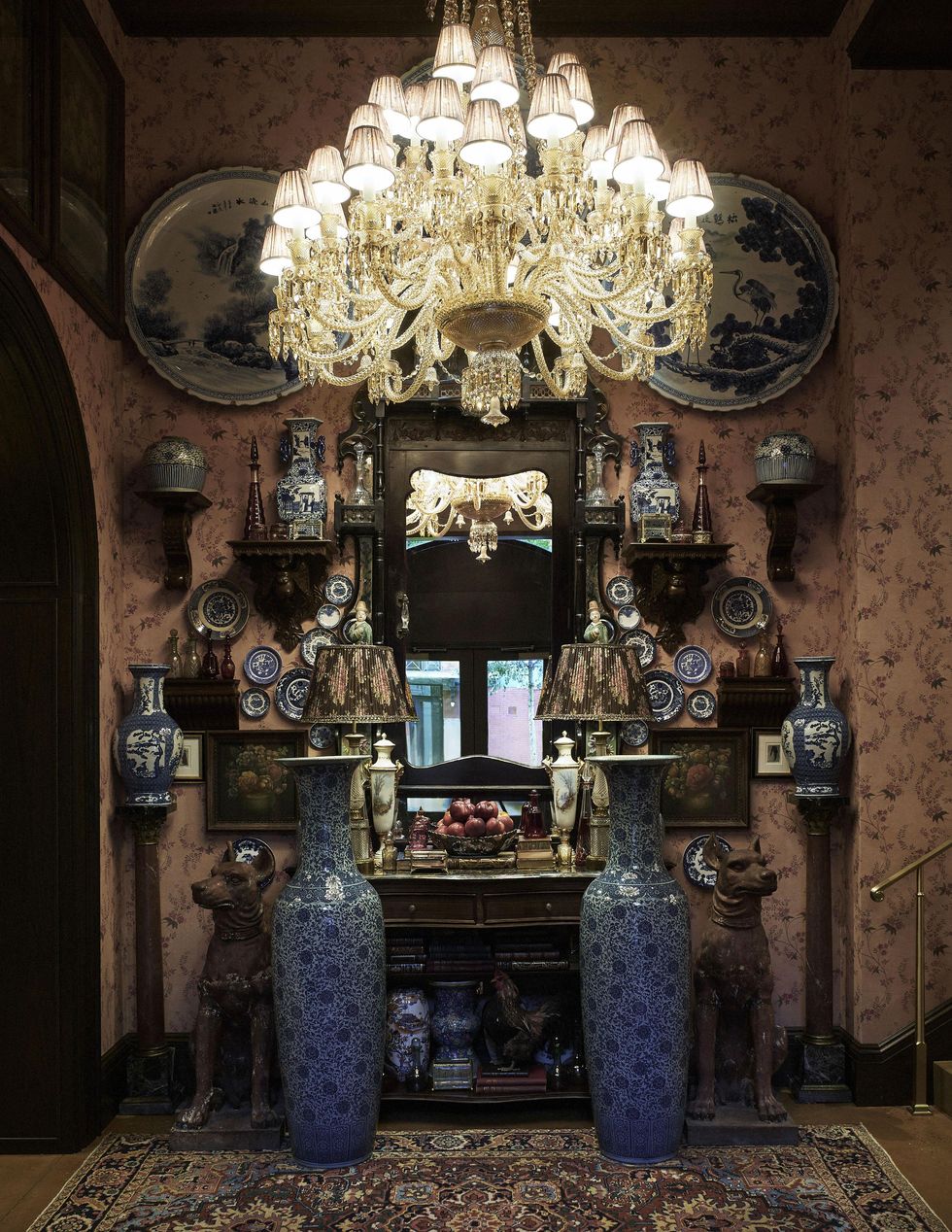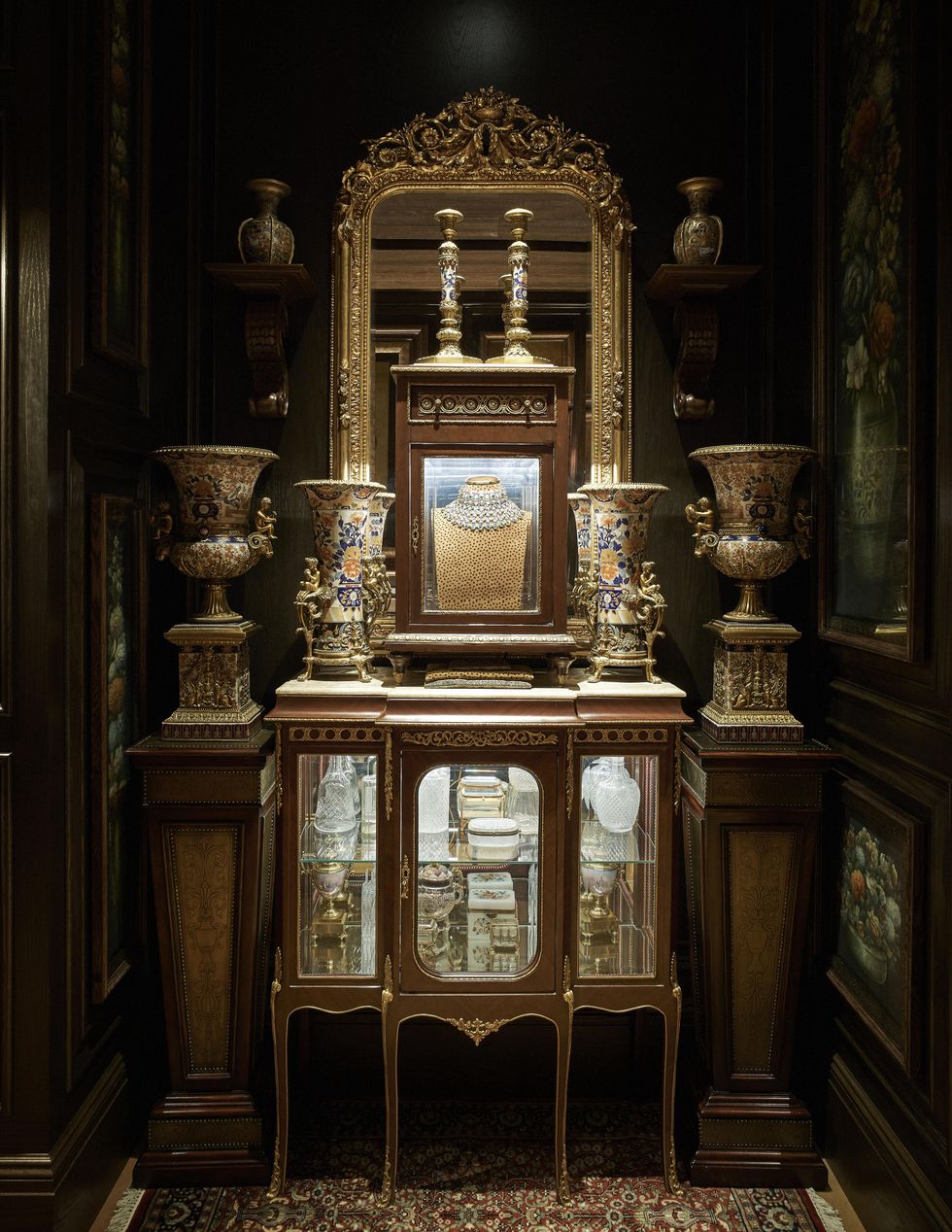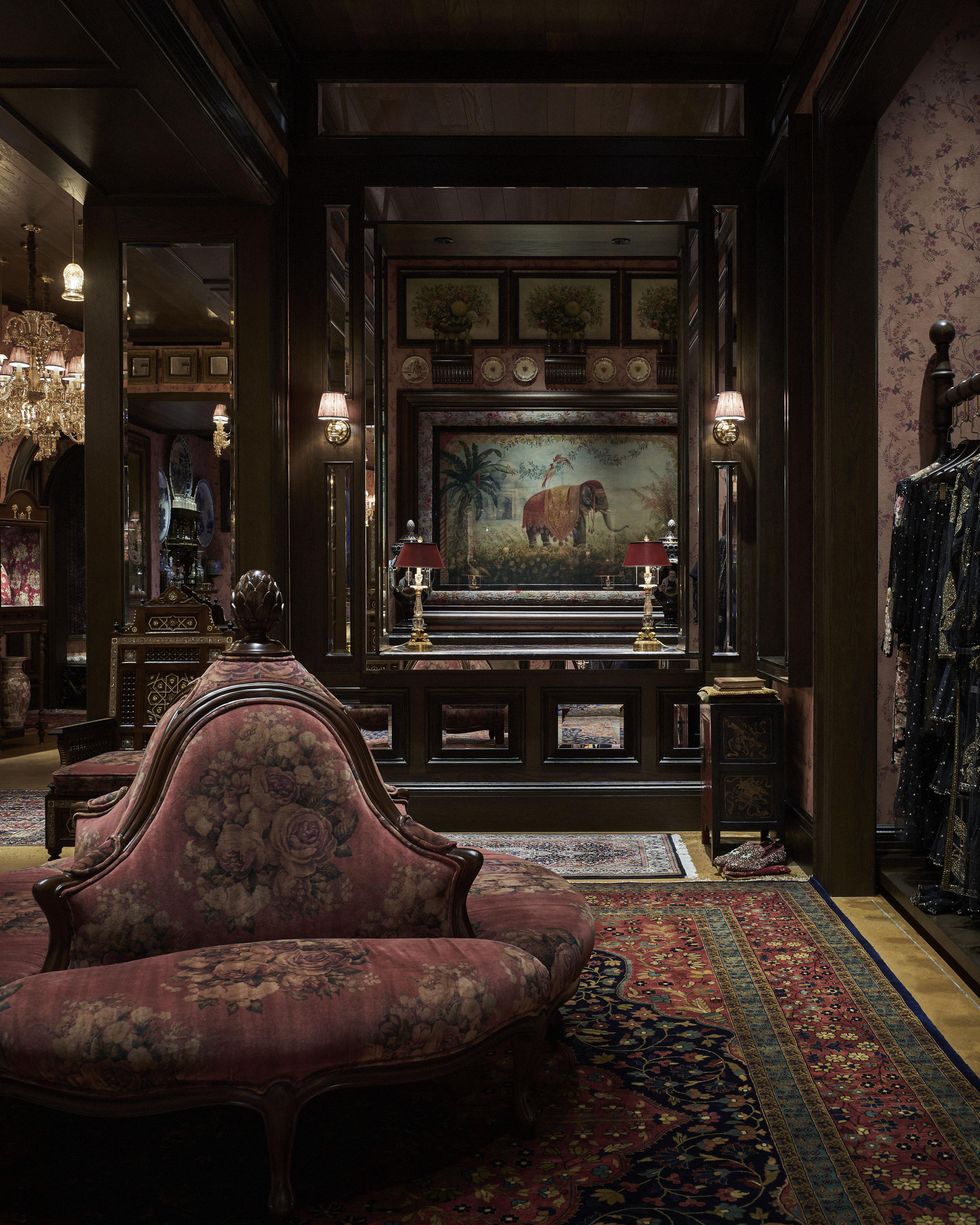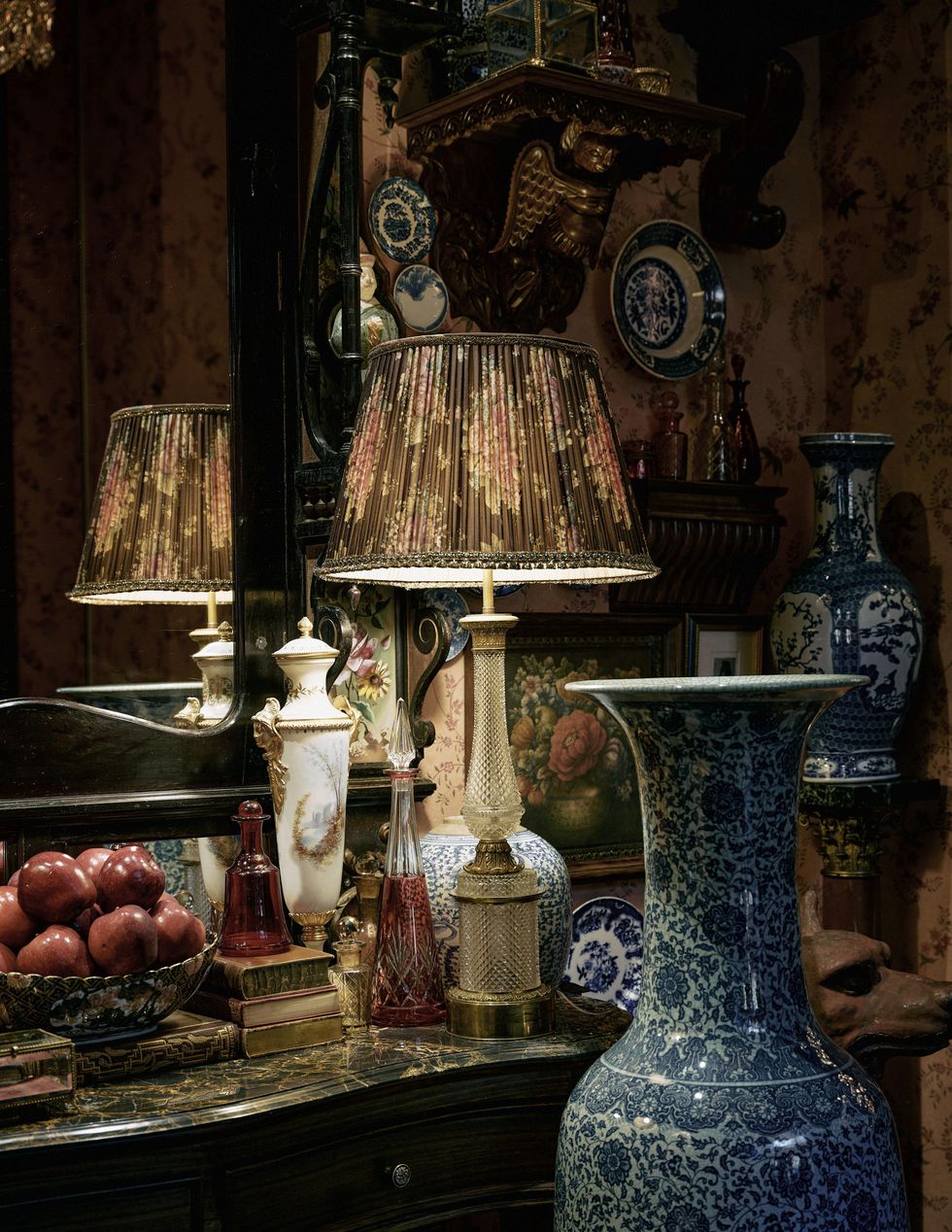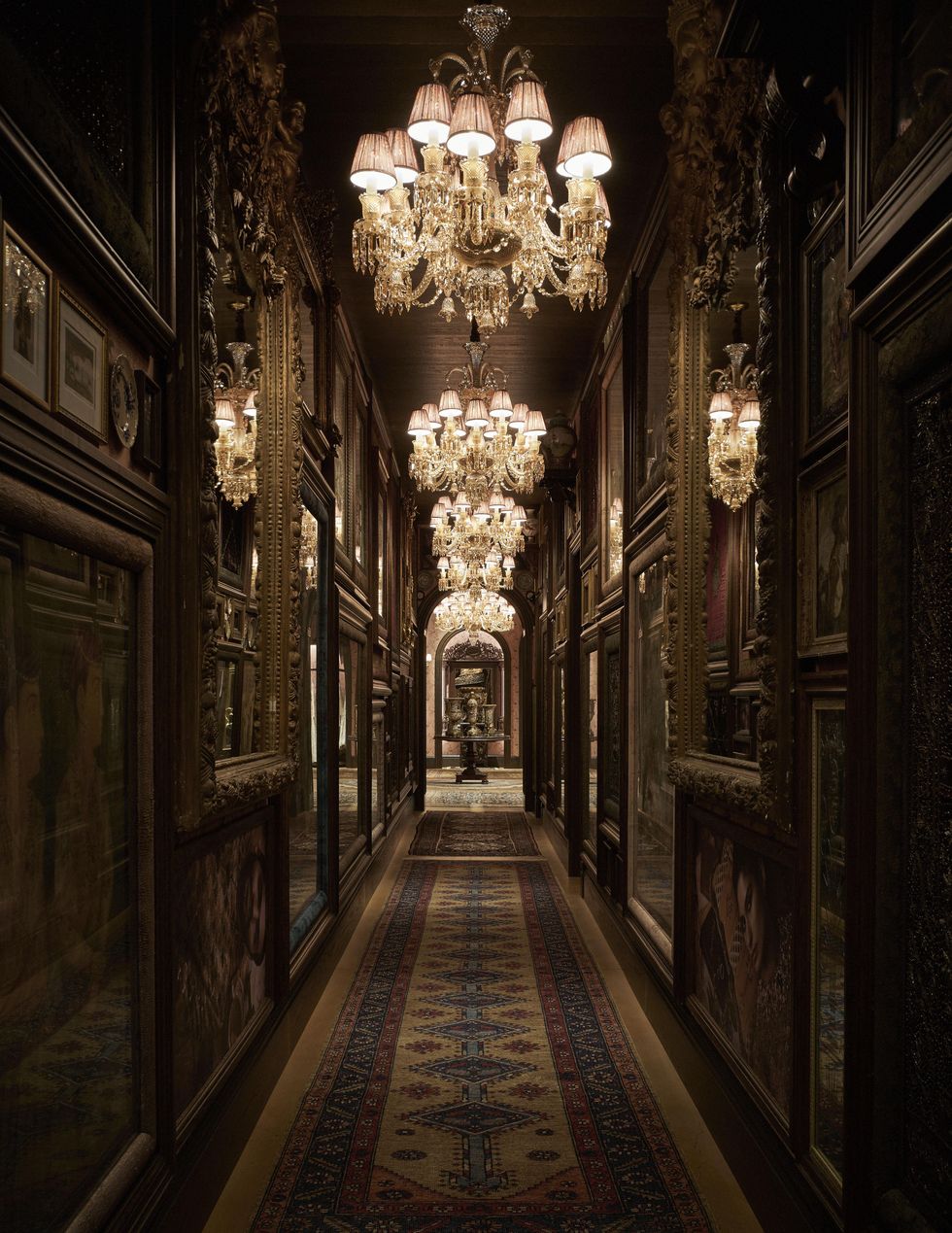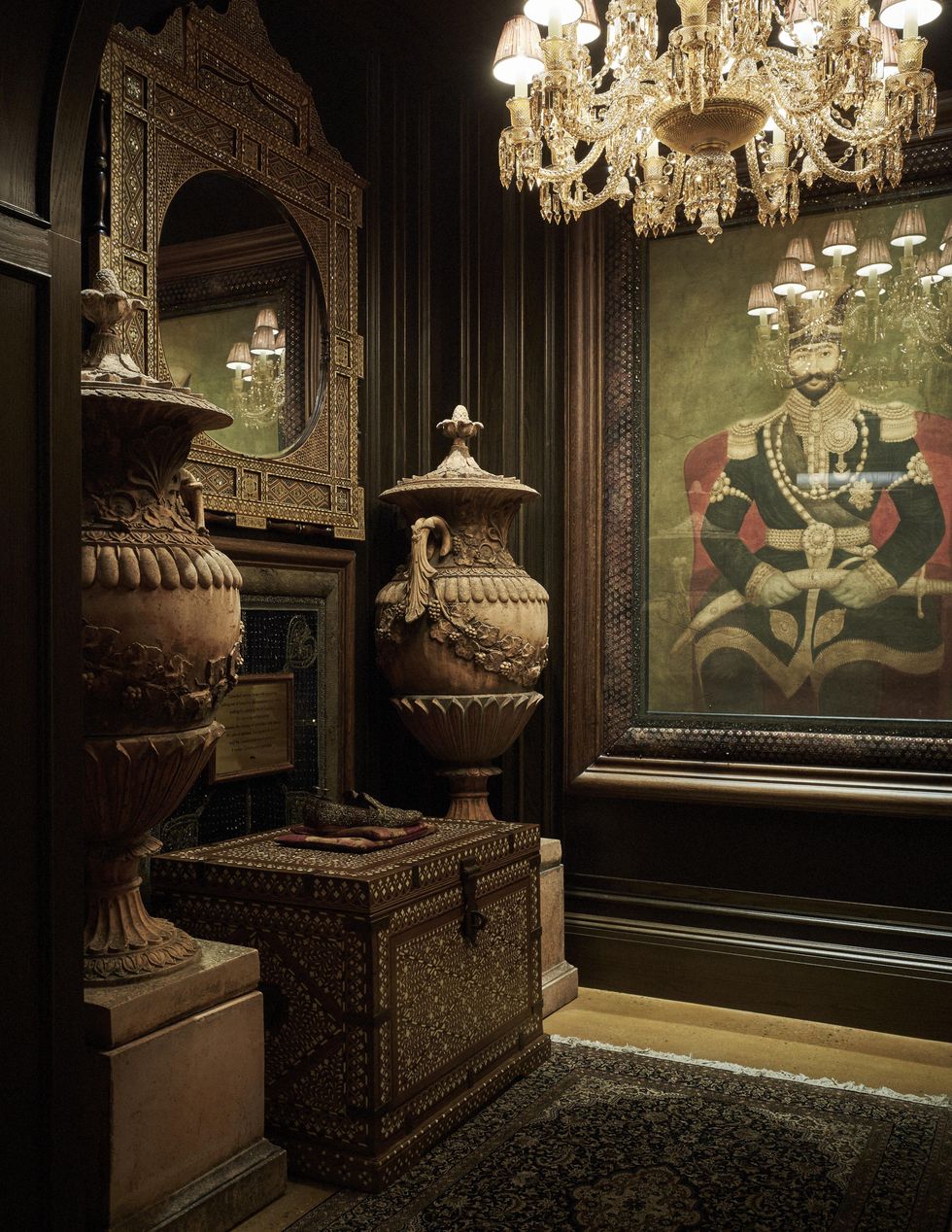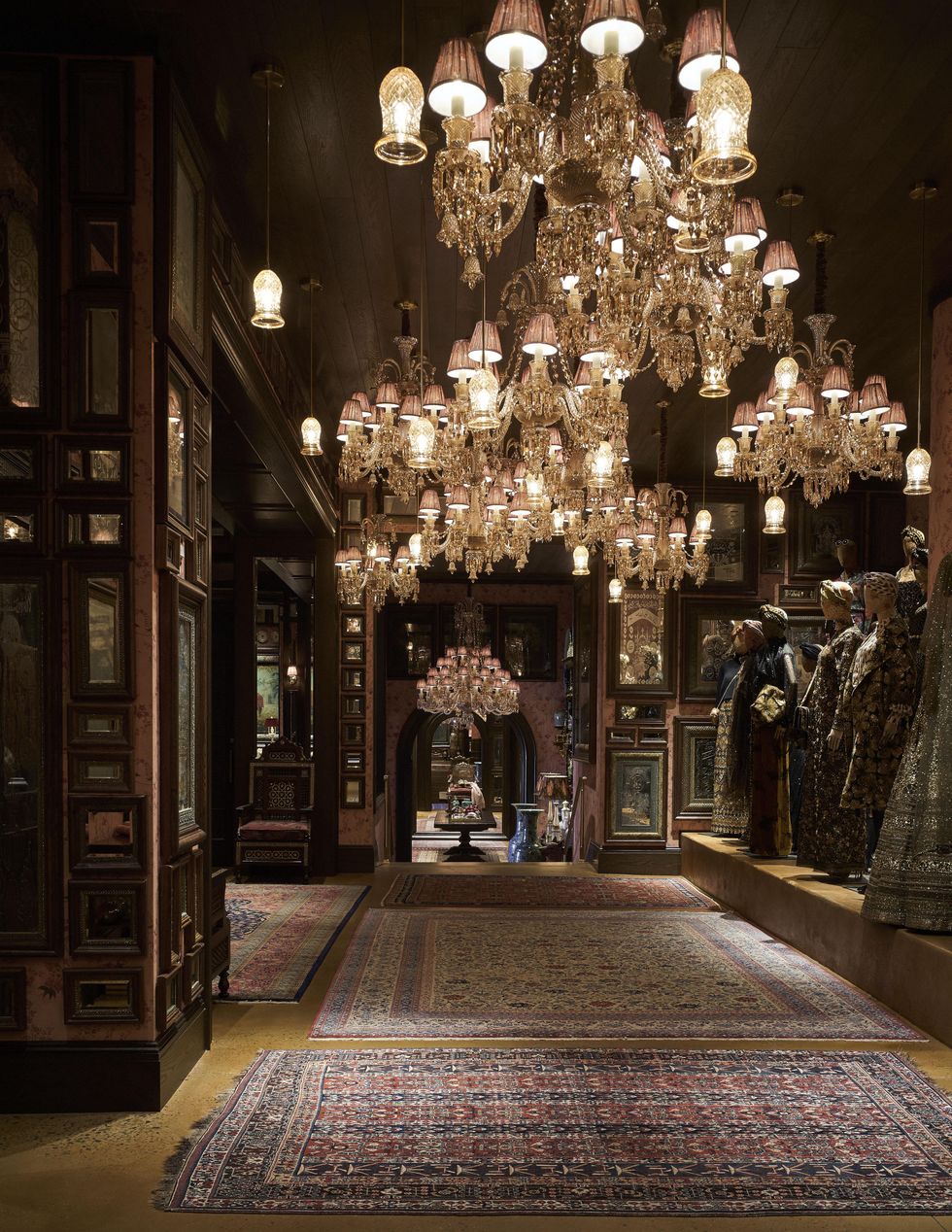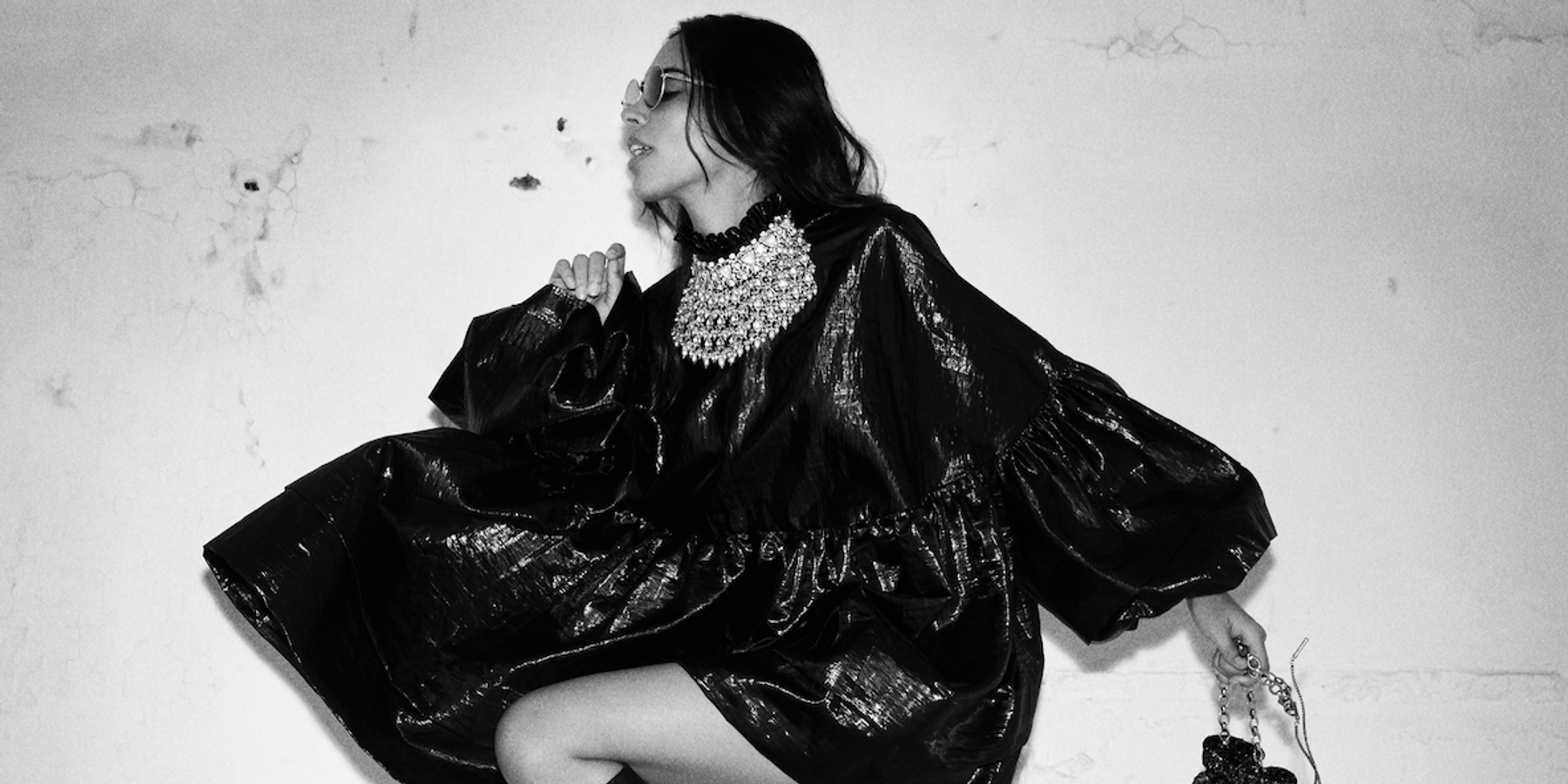
Sabyasachi Mukherjee is India’s most international superstar.
The Kolkata-based designer is known for his luxurious takes on traditional Indian silhouettes that are worn by Bollywood stars and billionaires alike.
His museum-like boutiques are also a destination for less high-profile clients who turn to the brand for his signature sartorial splendor to adorn at weddings and other special occasions.
Last year, the designer sold a 51% stake in the company to Aditya Birla Group. After a false start in the 2000s when he came to show at New York Fashion Week, he followed the advice of fashion journalist Suzy Menkes to build his brand in his home country first before coming to NYC as an established star.
In 2022, Mukherjee did just that, launching a hugely successful in-store boutique at Bergdorf Goodman and in October, a huge stand-alone store in a former school in the West Village. With 30% of his business coming from the US, NYC is definitely rolling out the red carpet this time. We caught up with Mukherjee at his stunning new NYC flagship.
So what made you decide to open a store in New York?
When I came to New York in 2007, people said change this, change that. That's not gonna work. This is too Indian. And I always feel that if you want to be a designer of consequence anywhere in the world, you need to be first who you are and then people will find you. I don't like being subservient to a market or a customer. I like to do my own thing. And that formula has worked for me in India. When I started doing my clothes in India, it wasn't the kind of clothes that Indians were wearing. It was very traditional because Indians were looking westward. I was making them look inwards.
America didn't buy my clothes at all. I was a failure, and then I remember meeting Suzy [Menkes] and I was telling her that I'm torn between deciding where to build my business. And she said that if you want to be a designer of consequence, you first become a designer of consequence in your home country. She said, make your money, create a business, then when you have stature and power and position, come back. And that's exactly what I did. Suzy is very wise.
I've never really considered myself a fashion designer because I don't think I understand fashion very well. I'm middle class. For me, value is very important and I like to do clothing that people can wear again and again. I don't show at Fashion Week. I don't do seasons anymore. For me, there's no summer, winter, nothing. I think when people pay a ridiculous amount of money to buy beautiful clothes, they want the clothes to last. You know, there is a time when you're growing your business when the market dictates who you should be, and then you reach a position in your life where you dictate what the market should be. It took me years of struggle, self-doubt and suffering massive imposter complex to be able to get to where I am today. I'm happy that I've come to New York on my own terms. I found my voice and I found my customers.
Was there one thing where you felt like maybe I've made it or maybe I've reached that stature and impostor syndrome started to fade a bit?
I think just happens with age. I'm an introvert, so I don't really mix around in the fashion industry. I do my work and I leave. I don't even have a social media account. I’ve got cousins at home and they asked me a very strange question. “Who are these people who buy your clothes and where do they go?" Now there is a middle class lens of looking at fashion that's indulgent, and they'll say, "I don't understand why these people spend so much money on these kinds of clothes when they can only wear it once."
I've always wanted stability over quick fame, and I think my confidence comes from really being direct-to-consumer ever since I opened Instagram and I started speaking to my consumers directly. I know that my consumers love me. There have been families with seven women from the same family over a period of 10 years. They've all come back to me to get married, and they buy all this special occasion clothes from me, and when your customer keeps coming back to you again and again and again and again, irrespective of trends and changing fashion, you know that there's something that you're doing. And you just realize that you don't have to play that game. You don't have to be an editor's favorite friend. You don't have to be the new poster boy of fashion.
So many people think it’s all about playing the game
One of the best things that happened to me — I think the best decision that I took in my life — was getting off Instagram. Because a lot of times, what happens is how you lead your life, who you want to be gets dictated by what everybody else is doing, and very rarely do you find your own voice. I think it gave me confidence that I'm a nice guy. I have done reasonably well in my life. There must be something good in me that people are coming back again and again.
I think the pandemic was the biggest crisis that we have seen in our lifetime, and it just made me feel better about who I am. It happens. Pisces are deceptive people because we are our biggest enemy because we overthink constantly, and it took me a very long time to battle my insecurities and my imposters complex, but here I am!
I don't think America is very receptive towards very drastically new things because they still like to be in the safety zone, but if anything has taught people to be more receptive than they were three years ago, it is the pandemic. I think this is also the time for exuberance, because what happens post any sort of downturn or depression, the biggest fantasies have come alive, whether it's the '20s, whether it's the musicals that came post-war. I think anything that's cookie cutter, or anything that's too generic is not going to work anymore.
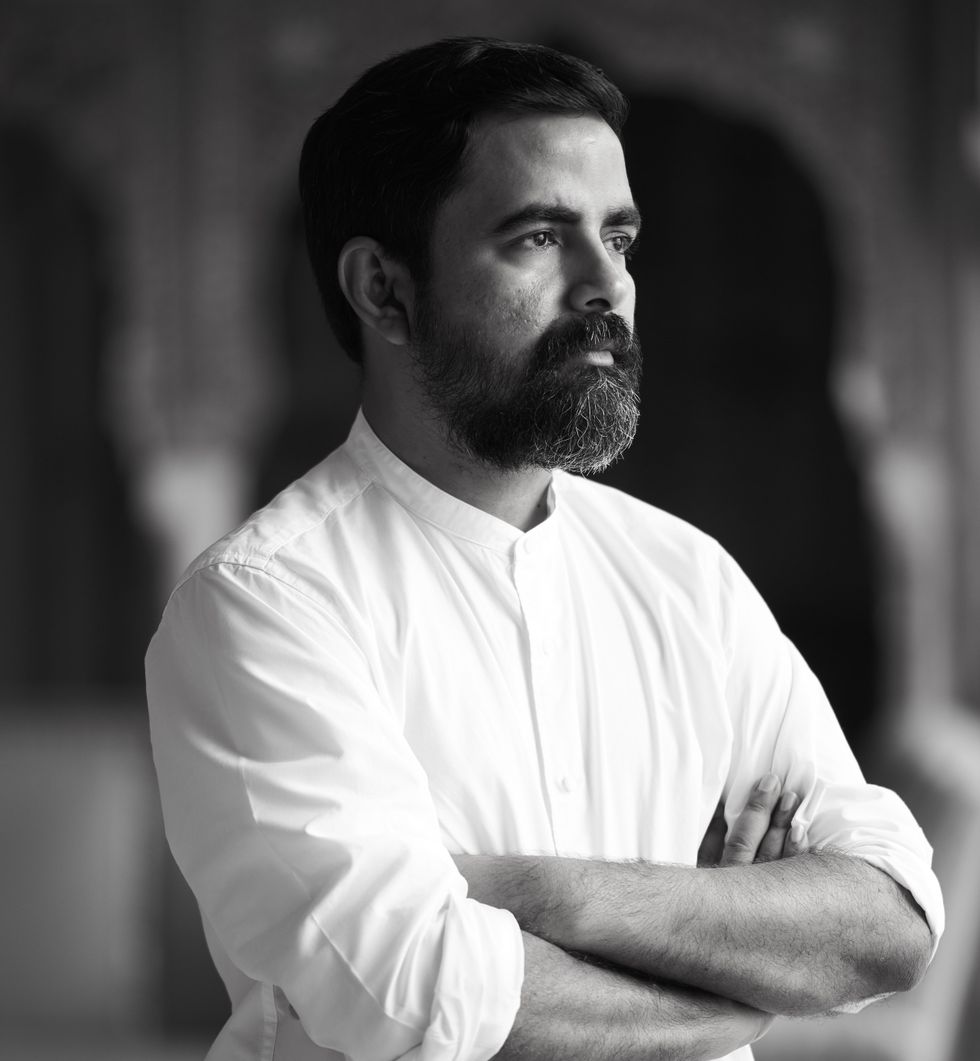
Sabyasachi Mukherjee (Courtesy)
35% of your business, I read, is America. Where did that come from? Was that all direct-to-consumer?
During the pandemic, the highest amount of wedding outfits that we delivered was to America, and we have a massive fan following here with consumers. They love it! I would say distance makes the heart grow fonder. I see my consumers in London. They love India, but the Americans here — the Indians living in America here — love India more because of the fact that the distance is larger.
Every time I talk to a consumer, they say one thing. They never come and say that your clothes are so beautiful or that they like you. They say, "We feel so proud!" They feel proud about how we've handled the brand. I have given an entire generation of Indians the courage to believe that heritage can be beautiful and powerful and international. And they feel happy that their culture is represented with a pride of place. The reason I built this store is people are saying that if you build a store that we can be proud of like how we are exceptionally proud of the brand, we want to bring all our American friends in and show them that this is the India that they should know because India is very badly represented sometimes internationally, and I never forgot that.
It's so true that India is so different than what people in the rest of the world imagine it to be.
This was probably the single most audacious decision that I've taken financially in my life, to build a store like this in America, because the cost of creating a store like this in New York is probably five times the cost of what it would be in India. And I bought a lot of old vintage art from 17th century, 18th century, because in my heart, I'm very proud to be Indian, and I say that in this country, if nothing, the country should be represented well, because even if I don't succeed, it breaks a glass ceiling in terms of perception for a lot of people about what India truly stands for will change. For me, this was more of a political will than a fashion will.
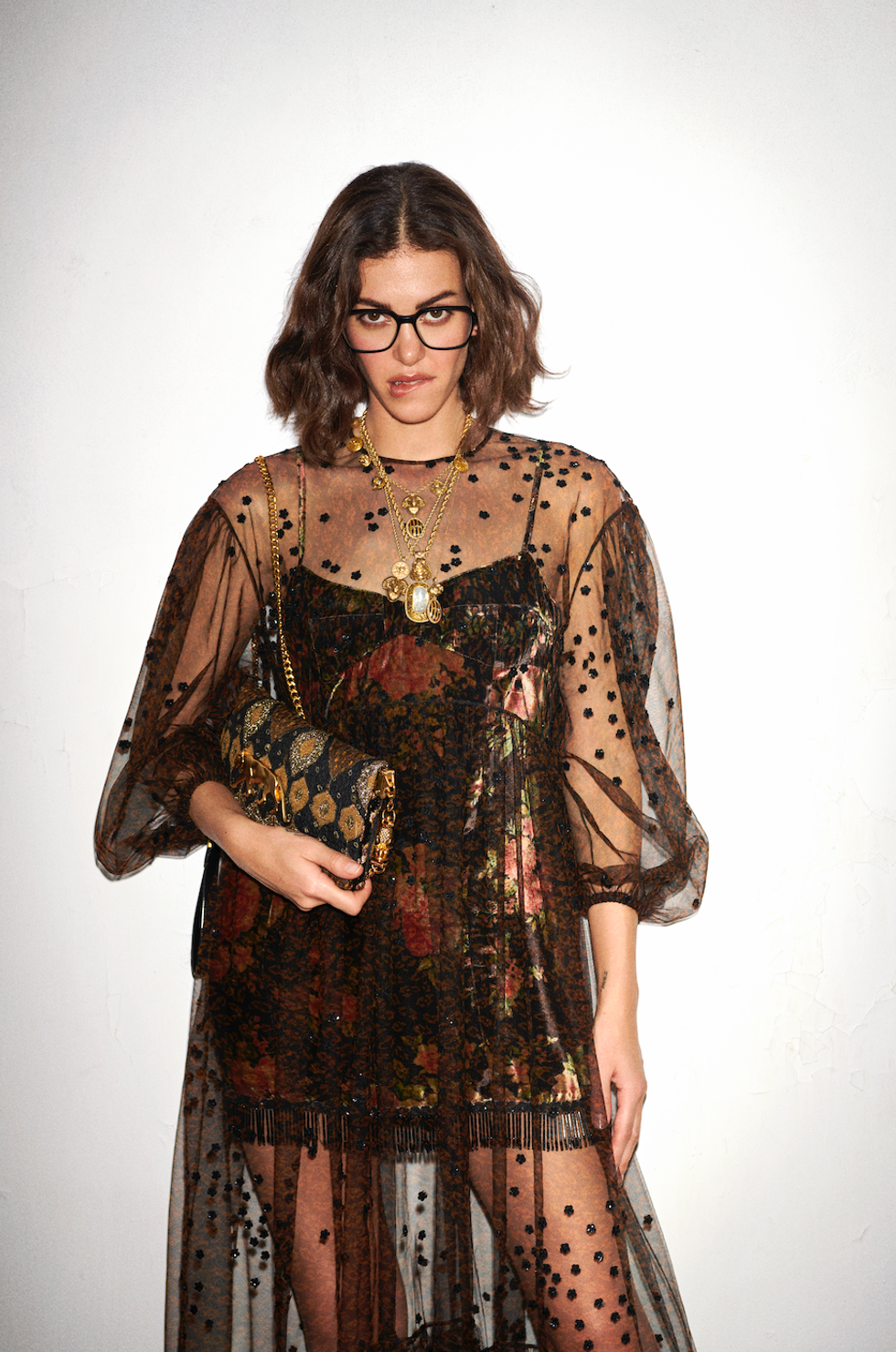
Courtesy of Sabyasachi
You sold 51% of your company to Birla. You gave them majority interest, why?
I don't have an heir. My family is not interested in my business. If you sell 39% or 40%, to somebody who's that large, you will fight all sorts of battles for the next 20 years to save your 51% or for them to take away 51% and it destroys the business. Mr. Birla has been a friend of mine for a very long time. He comes from Kolkata. I'm very proud of some of the business legacies that they have built and what they've done for education and empowerment within the country. I had a very simple chat with him.
He didn't want to take majority. He wanted to take minority. I pushed him to buy majority! I said, "Let's get it out of the way. At some point or the other, you will take majority. I'll give you 51%." But I gave him a very strong and long contract that I will get to run the business exactly the way I want to for as long as I live. He's very convinced that I'm going to create something amazing out of India, so he's given me the backing. For me, it's semantics. I don't care if I want 49. I'm very spiritual and very detached. I live in a rented apartment. I don't even have a house of my own because I don't like acquiring things.
You’re so Zen.
When you build a very well-loved company, you have to understand something the company does. It just happens to have my name now. The legacy is already India's. It's not mine anymore. It belongs to the country at large, the people at large, so I don't really feel that kind of an ownership. I feel a certain responsibility that I am the ferryman who has to take the boat to the other part of the shore. I don't have to own the boat. So, I gave it to him because I think he respected the fact that I had long term vision, and I made sure that the contract was watertight — that nobody's allowed to mess with the brand so I can build it slow and steady exactly the way I want to build it.
The Sabyasachi store is located at 160 Christopher Street, New York City.
